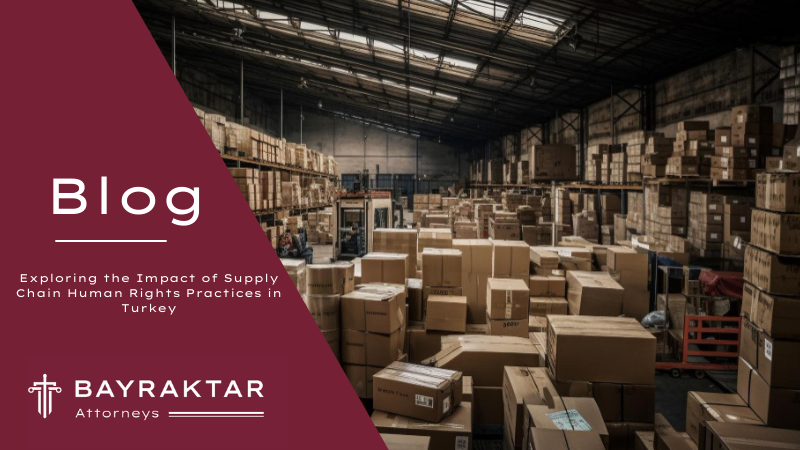
Exploring the Impact of Supply Chain Human Rights Practices in Turkey
In the interconnected world of global commerce, the issue of supply chain human rights in Turkey has emerged as a critical concern for companies and consumers alike. The recent years have seen a growing awareness of how products reaching international markets are sourced, manufactured, and distributed.
With Turkey’s strategic position as a bridge between the East and the West and its role as a significant player in global supply chains, understanding the human rights dimension has become more pertinent than ever.
The Landscape of Human Rights in Turkish Supply Chains
Turkey’s labor force is a powerhouse for various industries including textiles, automotive, and agriculture. Unfortunately, these sectors often witness labor rights issues such as poor working conditions, child labor, and limited freedom of association.
The complexity is accentuated when considering the influx of refugees into Turkey, bringing forth additional challenges around their integration into the legal labor market. Ensuring supply chain human rights in Turkey is not just about compliance, but about the ethical imperative to support fair labor practices at every stage.
Challenges and Risks
Companies operating within Turkey face multiple challenges in upholding human rights within their supply chains. The legal framework, though robust on paper, often fails in enforcement due to lack of resources, corruption, or bureaucratic inertia.
Furthermore, in the face of geopolitical tensions and economic pressures, businesses can prioritize cost-cutting over social responsibility, leading to a deterioration in working conditions. As a result, risks of human rights abuses remain, requiring continuous vigilance and proactive measures.
Best Practices and Positive Developments
It’s not all bleak, however. There are shining examples of companies implementing rigorous human rights policies and due diligence processes that serve as benchmarks for the industry. Audits, certifications, and worker empowerment programs are a few strategies being adopted to steer supply chains towards more ethical practices.
Additionally, increased consumer consciousness has bolstered the demand for transparency and accountability, pressing companies to reveal the working conditions under which products are made.
Moving Forward: The Road Ahead for Human Rights in Turkish Supply Chains
The conversation surrounding supply chain human rights in Turkey is an ongoing one, with stakeholders from businesses, governments, and civil society all playing vital roles. Proactive engagement, investment in local communities, and advocating for stronger legal protections are essential steps on the path to improvement.
As companies strive for sustainability, balancing profit with social responsibility, the hope is for Turkey’s workers to see substantial and lasting improvements in their working lives, heralding a new era for supply chains where human rights are at the core.
Join us at Bayraktar Attorneys in driving positive change and upholding human rights within Turkish supply chains.
As advocates for ethical business practices, we understand the importance of ensuring fair treatment and dignity for all workers involved in the production process.
Our expert legal team is committed to assisting companies in navigating the complex landscape of supply chain human rights in Turkey.
Whether you’re seeking guidance on compliance with labor laws, implementing robust due diligence processes, or responding to human rights challenges within your supply chain, we’re here to support you every step of the way. Together, let’s work towards creating a more sustainable and ethical future for Turkish supply chains.
Contact us today to learn more about how our legal expertise can help you uphold human rights standards and build a responsible business model in Turkey. Let’s make a difference together.
Recently Added Blogs



.png)
.png)
.png)
.png)
